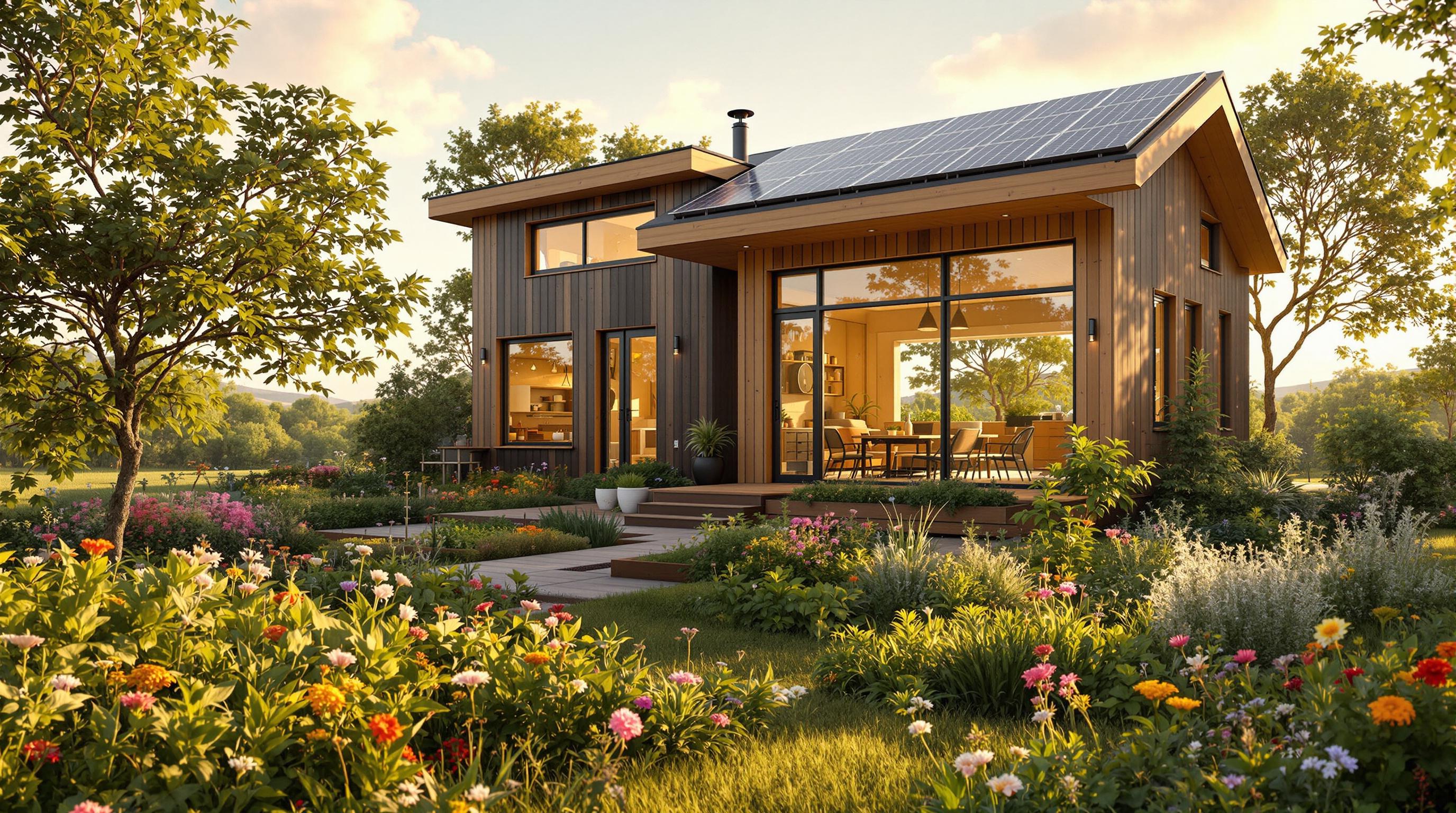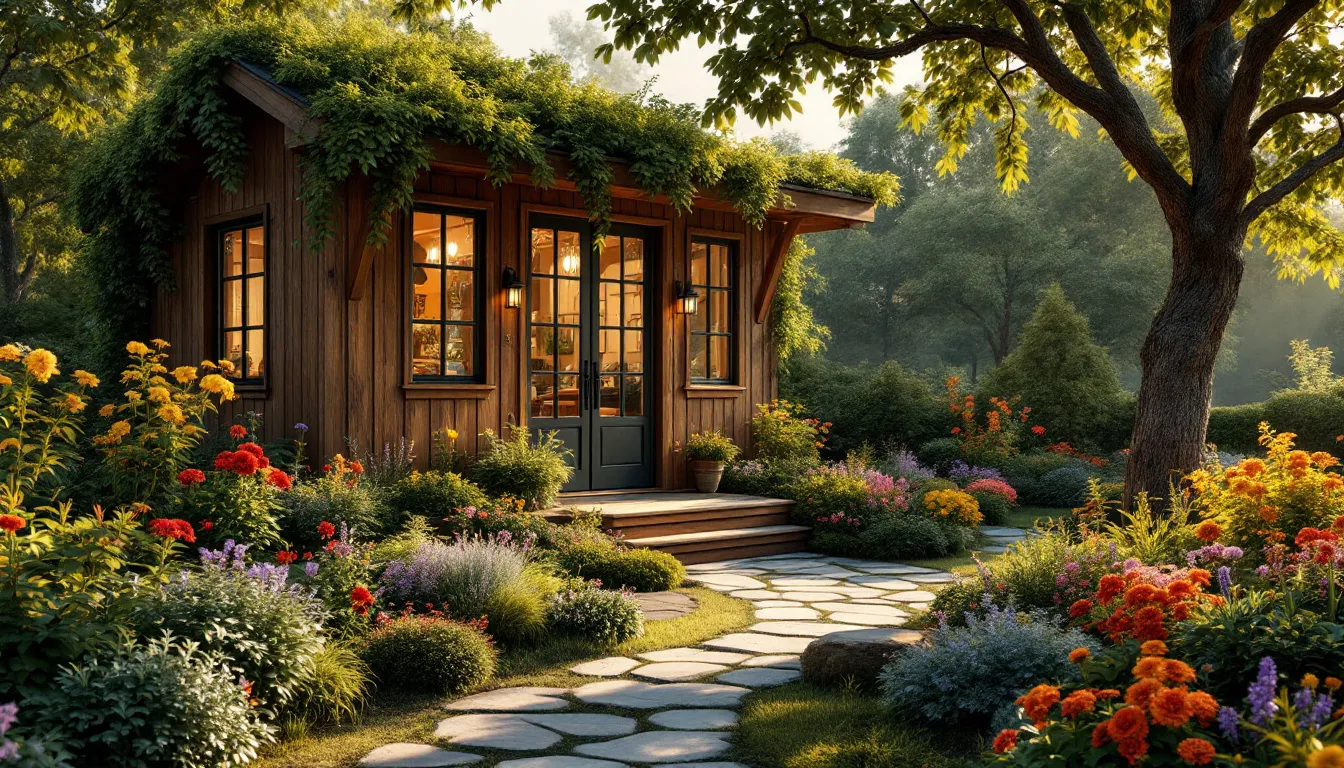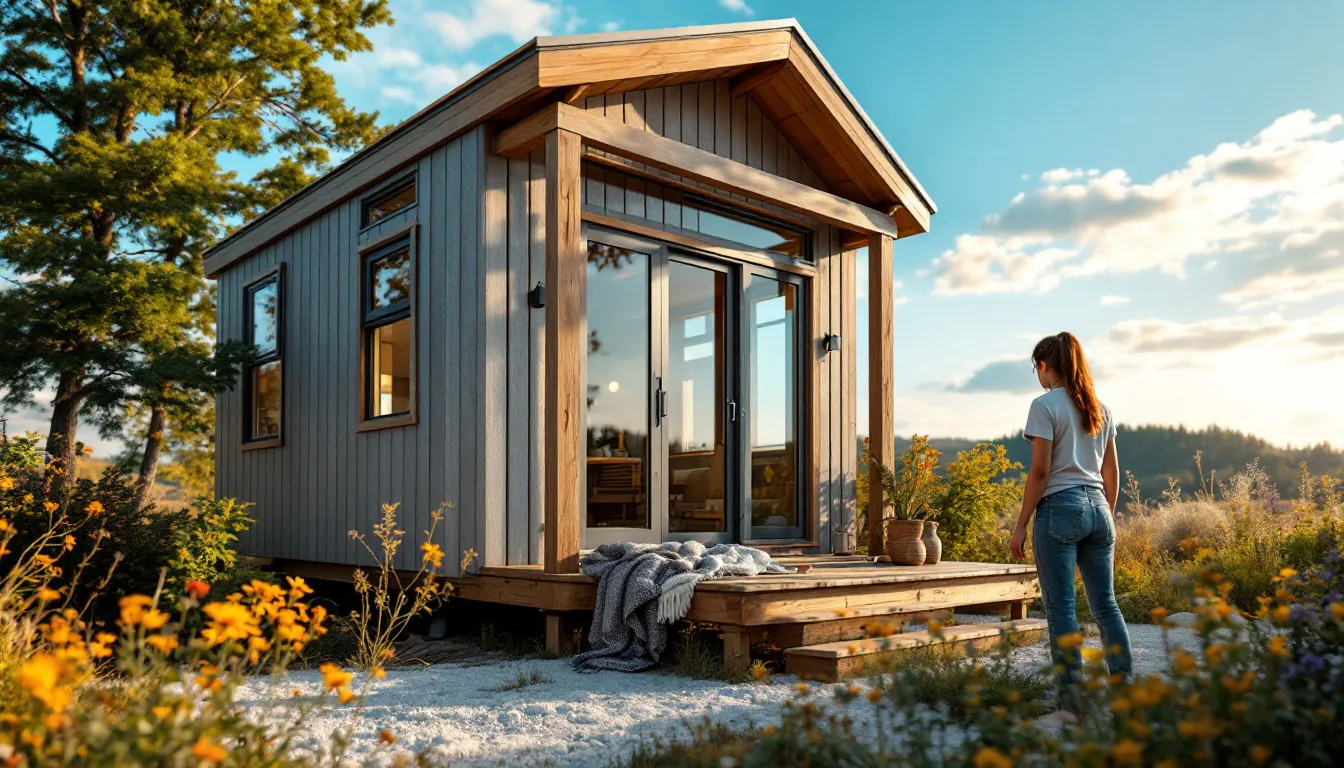Choosing between tiny houses and mobile homes depends on your priorities. Here's a quick breakdown:
- Cost: Tiny houses cost less upfront ($30,000–$60,000) but have a higher price per square foot. Mobile homes are more expensive overall ($87,700–$156,300) but offer more space for the money.
- Size: Tiny houses are compact (100–400 sq ft) and suitable for minimalists. Mobile homes are larger (480–3,600 sq ft), better for families or those needing more room.
- Financing: Mobile homes qualify for traditional loans (FHA, VA), while tiny houses often require personal or RV loans.
- Portability: Tiny houses are easier and cheaper to move. Mobile homes require professional movers and more time.
- Regulations: Tiny houses face zoning challenges, while mobile homes follow HUD standards, making placement easier.
- Resale Value: Tiny houses retain value better; mobile homes depreciate faster unless on owned land.
- Eco-Friendliness: Tiny houses often include green features like solar panels and composting toilets, while mobile homes consume more energy.
Quick Comparison:
| Feature | Tiny House | Mobile Home |
|---|---|---|
| Cost | $30,000–$60,000 | $87,700–$156,300 |
| Size | 100–400 sq ft | 480–3,600 sq ft |
| Financing | Personal/RV loans | FHA, VA, RHS loans |
| Portability | Easy, lower cost | Complex, higher cost |
| Regulations | Zoning challenges | HUD-compliant |
| Resale Value | Retains value better | Depreciates faster |
| Eco-Friendliness | Solar panels, composting | Higher energy consumption |
Your choice depends on whether you value flexibility and eco-friendliness (tiny house) or space and financing options (mobile home).
Main Differences Between Tiny Houses and Mobile Homes
Size and Living Space
The biggest difference between tiny houses and mobile homes is their size. Tiny houses typically range from 100 to 400 square feet, making them ideal for minimalist living. On the other hand, mobile homes offer much more space, ranging from 600 to 2,500 square feet, which is better suited for families or those who want more room. Tiny houses often rely on clever, multi-functional layouts to maximize space, while mobile homes provide separate areas, such as full-sized kitchens and bedrooms. If minimalism is your goal, a tiny house might be the perfect choice. But if you prefer a more traditional setup, a mobile home could be a better fit.
Costs and Affordability
Tiny houses cost an average of $45,000, but their price per square foot is higher ($112–$450) because of their compact design. Mobile homes, with an average cost of $128,000, offer a lower price per square foot ($51–$213), making them a more budget-friendly option if you’re looking for more space [1][3].
Rules and Zoning Laws
Mobile homes follow HUD codes, which make financing easier through loan programs like FHA, VA, or RHS [2][4]. Tiny houses, however, face more zoning and regulatory hurdles. Many municipalities don’t have clear classifications for tiny houses, leading to restrictions. For example, some areas enforce minimum square footage rules or lack specific building codes for tiny homes, making it harder to find suitable placement.
Understanding these regulations is crucial because they affect not only where you can live but also the financial practicality of your choice. These differences in rules and zoning play a big role in deciding between the two options, especially when considering long-term living plans.
Financial Factors for Tiny Houses and Mobile Homes
Upfront Costs and Financing
On average, tiny houses cost between $30,000 and $60,000, while mobile homes range from $87,700 for single-wide units to $156,300 for double-wide models [1][3]. When it comes to financing, mobile homes have access to traditional loans, including FHA, VA, and RHS programs. Tiny houses, however, usually require alternative financing methods since they rarely qualify for standard mortgages [5].
Maintenance Costs
Tiny houses typically have lower maintenance expenses thanks to their smaller size and simpler systems [5]. Their compact design translates to reduced overall costs compared to mobile homes, which often demand more extensive upkeep.
| Factor | Tiny House | Mobile Home |
|---|---|---|
| Overall Costs | Lower | Higher |
Resale Value and Long-Term Potential
Tiny houses often retain their value better, partly due to their appeal to eco-conscious buyers. In contrast, mobile homes frequently depreciate unless they're well-maintained or situated on owned land [5]. While tiny homes have a higher cost per square foot, they often use better-quality materials, which helps maintain their value [1][3]. Although financing can be trickier for tiny houses, their growing popularity among minimalists and eco-focused buyers adds to their long-term appeal.
In addition to financial factors, features like portability and lifestyle compatibility play a key role in choosing between these housing options.
Practical Benefits of Tiny Houses and Mobile Homes
Portability and Flexibility
Tiny houses are much easier to move and set up compared to mobile homes. They can often be transported using a standard vehicle and be ready within hours. On the other hand, mobile homes require professional movers, specialized equipment, and significantly more time - sometimes days or even weeks - to install properly [2][6].
| Feature | Tiny House | Mobile Home |
|---|---|---|
| Transportation Requirements | Standard vehicle towing | Professional movers and equipment |
| Setup Time | Hours | Days to weeks |
| Relocation Cost | Lower | Higher |
| Best For | Frequent movers | Semi-permanent residents |
Eco-Friendly Features
Tiny houses often come equipped with systems like solar panels, rainwater collection setups, composting toilets, and insulation made from recycled materials. These features make them a great choice for those looking to reduce their environmental footprint [2][3]. Mobile homes, while offering more space, generally require more energy for heating, cooling, and maintenance, making them less efficient in this regard [2][3].
Lifestyle Fit
With sizes typically ranging between 100 and 400 square feet, tiny houses cater to individuals or couples who prioritize simplicity and minimal living [2][3]. Mobile homes, being larger with more traditional layouts, are better suited for families or those who need extra room and accessibility [2][3].
Choosing between these two options depends on your lifestyle goals. Tiny houses are ideal for people seeking a more mobile, eco-conscious way of living, while mobile homes offer a stable, familiar environment similar to conventional housing but often at a lower cost. Carefully weigh your financial and practical needs to determine which housing style aligns with your long-term plans [2][6].
sbb-itb-2ef3f3a
Related video from YouTube
Side-by-Side Comparison: Tiny Houses vs Mobile Homes
When deciding between tiny houses and mobile homes, it's important to compare their features side-by-side. Here's a breakdown of the main differences to help guide your decision.
Comparison Table
| Feature | Tiny House | Mobile Home |
|---|---|---|
| Size Range | 100-400 sq ft | 480-3,600 sq ft (single to triple-wide) [1][2] |
| Average Cost | $30,000-$60,000 | Single-wide: $87,700 Double-wide: $156,300 [1][3] |
| Cost per Square Foot | $300 | Single-wide: $90 Double-wide: $61 [1] |
| Financing Options | Personal loans, RV loans | Conventional mortgages, FHA, VA, RHS loans [1] |
| Setup Requirements | Minimal setup time (hours) Standard vehicle towing |
Professional installation required Days to weeks for setup [2][6] |
| Regulations | Zoning challenges in certain areas | Strict government and state regulations [2] |
| Maintenance Costs | Lower due to smaller size | Higher due to complex systems [6] |
| Environmental Impact | Eco-friendly options like: - Solar panels - Rainwater collection - Composting toilets |
Traditional utilities with: - Higher energy consumption [2][3] |
| Best Suited For | - Singles/couples - Minimalist lifestyle - Frequent movers |
- Families - Those needing more space - Semi-permanent residents [2][3] |
| Resale Potential | Retains value better with maintenance | Depreciates faster [6] |
This table outlines the main trade-offs: tiny houses focus on mobility and eco-conscious living, while mobile homes provide more space and traditional financing options. Choosing between the two comes down to what matters most to you - whether that's flexibility, cost, or lifestyle needs.
Conclusion: Deciding Between a Tiny House and a Mobile Home
Choosing between a tiny house and a mobile home comes down to your financial priorities, lifestyle choices, and long-term plans.
Financial Factors: Tiny houses typically cost less upfront but come with a higher price per square foot. Mobile homes, on the other hand, provide more space for a higher initial cost. Each option has its own strengths, as shown in the comparison table, depending on what you’re looking for.
Value Over Time: Tiny houses tend to hold their value better, while mobile homes often lose value more quickly unless they’re placed on owned land. Mobile homes do, however, offer access to traditional financing options like FHA, VA, and RHS loans [1].
Lifestyle Fit: Think about your daily needs. Tiny houses are ideal for singles or couples who value mobility, minimalism, and a smaller footprint. Mobile homes are better suited for families or anyone looking for more space and access to conventional financing [2][3].
Practicality: If you’re focused on maximizing living space for your money, mobile homes deliver more square footage. But if flexibility, a smaller environmental impact, and better value retention are priorities, a tiny house could be worth the higher cost per square foot [1][2][6].
FAQs
Which is better, a tiny home or a mobile home?
Both tiny homes and mobile homes come with their own set of perks. Here's a breakdown based on key factors:
Space and Cost: Mobile homes offer more room (480-2,560 sq ft) and are cheaper per square foot, making them ideal for larger households. Tiny homes, on the other hand, are much smaller (100-400 sq ft) but often come with a higher price tag per square foot [1][2].
Financing: Mobile homes are easier to finance with loans like FHA, VA, or RHS. Tiny homes usually require alternative financing methods [1].
Maintenance and Long-term Costs: Tiny homes are less expensive to maintain, costing around $500-$1,000 annually due to their smaller size. Mobile homes, being larger and more complex, tend to have higher upkeep costs [6][7].
Eco-Friendliness: Tiny homes often include features like solar panels and composting toilets, making them a greener option [2][3].
Here's how to decide based on your priorities:
-
Pick a tiny home if you want:
- Easy mobility
- A smaller environmental footprint
- Lower overall costs
- Go for a mobile home if you need:
Your choice ultimately depends on what matters most to you - whether that's flexibility, affordability, or a smaller environmental impact.



